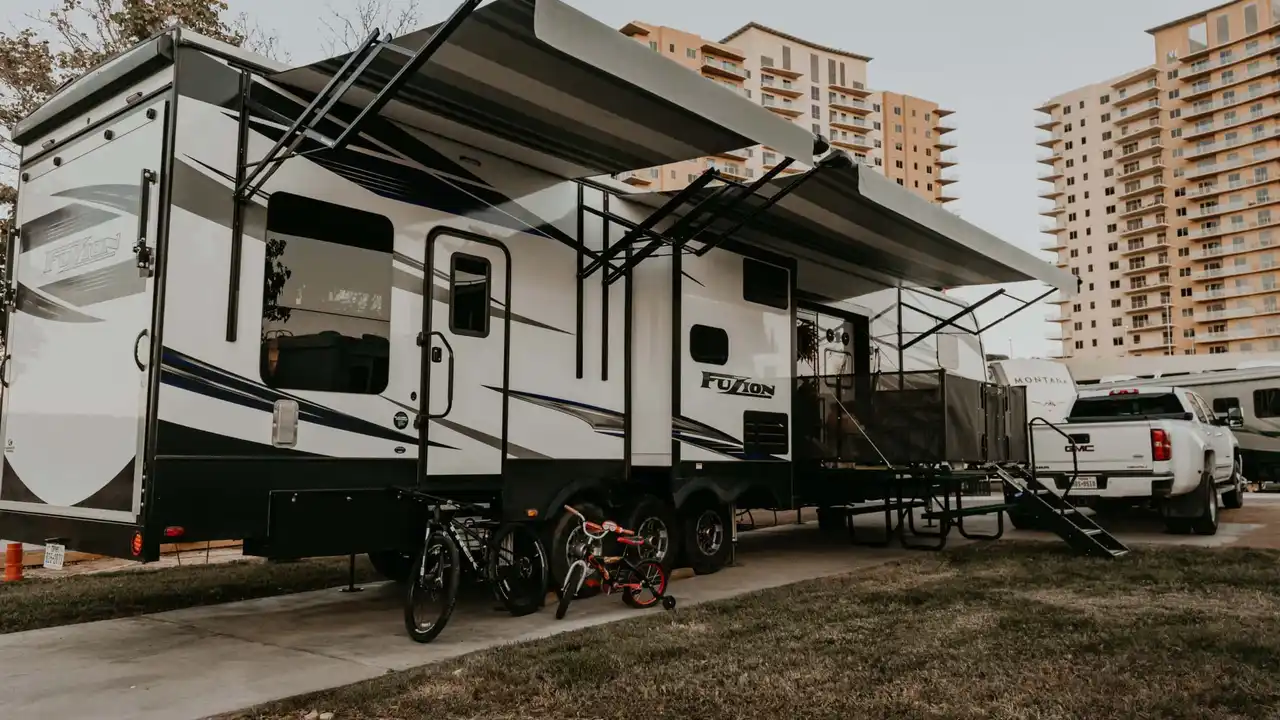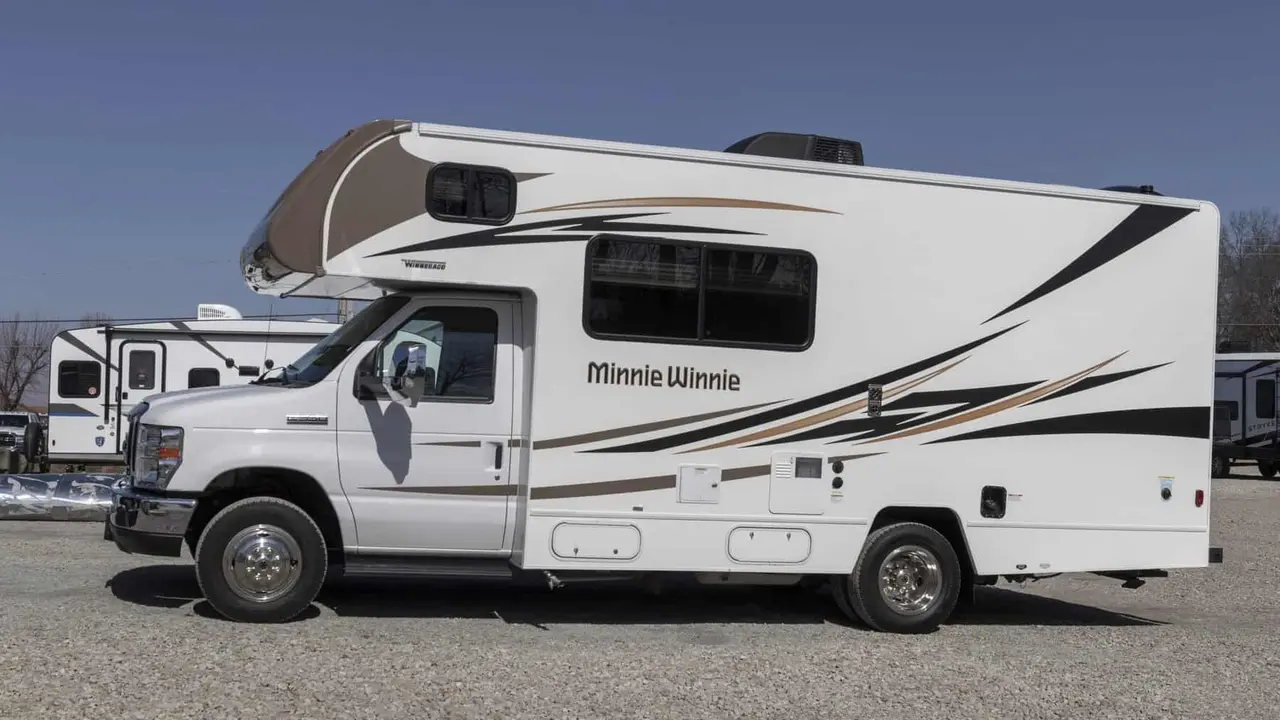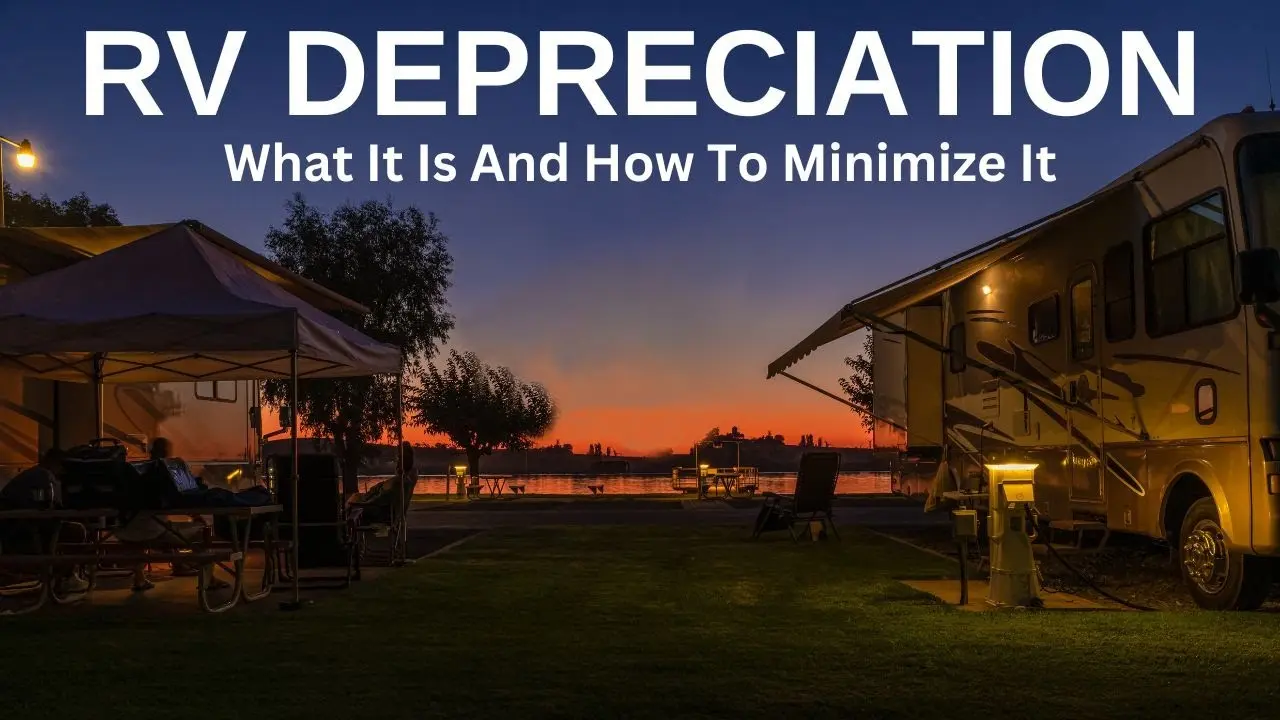RV Title and Registration: A Complete Guide

Understanding RV Titles The Cornerstone of Ownership
So, you're diving into the world of RVs? Fantastic! Before you hit the open road, let's talk about something crucial: the RV title. Think of it as the birth certificate for your rolling home. It's the legal document that proves you own the RV, and it's essential for registration, insurance, and eventually, selling it.
A title contains vital information about your RV, including the Vehicle Identification Number (VIN), make, model, and year. It also lists the owner's name and address, and any liens against the RV. Liens are basically claims against the RV, usually from a lender if you financed your purchase. It's crucial to ensure any liens are cleared before you finalize the sale, otherwise, you could be stuck paying off someone else's debt.
Where do you get an RV title? Typically, you'll receive it from the seller when you purchase the RV. If you're buying from a dealership, they'll usually handle the title transfer process for you. If you're buying from a private seller, you'll need to go to your local Department of Motor Vehicles (DMV) or equivalent agency to transfer the title into your name.
What if you lose your RV title? Don't panic! You can usually apply for a duplicate title at your local DMV. The process usually involves filling out an application, providing proof of ownership (like a registration or insurance card), and paying a fee.
RV Registration Navigating the Legal Requirements
Okay, you've got your title, now it's time to register your RV. Registration is the process of officially registering your RV with the state you reside in. This allows you to legally operate the RV on public roads. Think of it like getting license plates for your car.
The registration process varies from state to state, but generally involves providing your title, proof of insurance, and paying registration fees. Some states may also require a vehicle inspection to ensure your RV meets safety standards.
Registration fees are typically based on the RV's weight, size, or value. Be prepared to pay these fees annually or biennially to keep your registration current. Failing to register your RV can result in fines, penalties, and even impoundment.
Where do you register your RV? You'll usually register it at your local DMV or equivalent agency. Some states also allow online registration or registration through authorized third-party providers.
RV Title Transfer The Step-by-Step Process
Selling or buying an RV involves transferring the title from the seller to the buyer. This process ensures that the legal ownership of the RV is transferred correctly. It's a critical step to avoid future legal complications.
The title transfer process usually involves the seller signing the title over to the buyer, providing the buyer with a bill of sale, and the buyer submitting the title and bill of sale to the DMV. The buyer will also need to pay any applicable transfer fees and taxes.
It's important to ensure the title is properly signed and dated by both the seller and the buyer. Any errors or omissions on the title can delay or even prevent the transfer. It's also crucial to verify the seller's identity to prevent fraud.
For private sales, consider using an escrow service to ensure a smooth and secure title transfer. Escrow services hold the funds until the title transfer is complete, protecting both the buyer and the seller.
RV VIN Verification Ensuring Authenticity and Avoiding Scams
The Vehicle Identification Number (VIN) is a unique identifier assigned to each RV. It's like a fingerprint for your RV, and it's used to track its history and verify its authenticity. It's crucial to verify the VIN before purchasing an RV to avoid scams and ensure you're getting what you pay for.
The VIN is typically located on the RV's dashboard, doorjamb, or frame. You can also find it on the RV's title and registration documents.
Use a VIN decoder tool online to verify the VIN and learn more about the RV's history, including its make, model, year, and manufacturing plant. This can help you identify any discrepancies or potential red flags.
Compare the VIN on the RV to the VIN on the title and registration documents. Any inconsistencies could indicate a problem, such as a stolen or altered VIN.
Consider purchasing a vehicle history report from a reputable provider like Carfax or AutoCheck. These reports provide valuable information about the RV's history, including accidents, damage, and title issues.
RV Liens and Encumbrances Clearing the Path to Ownership
A lien is a legal claim against your RV, usually from a lender if you financed your purchase. It's important to ensure any liens are cleared before you finalize the sale, otherwise, you could be stuck paying off someone else's debt. Understanding liens is crucial for a smooth RV purchase.
Liens are typically recorded on the RV's title. You can check for liens by contacting your local DMV or by ordering a title search.
If there's a lien on the RV, the seller will need to satisfy the lien before transferring the title to you. This usually involves paying off the outstanding debt to the lender.
The lender will then issue a lien release, which is a document that confirms the lien has been satisfied. The lien release should be submitted to the DMV to remove the lien from the title.
If you're financing your RV purchase, the lender will likely place a lien on the RV until you pay off the loan. Make sure you understand the terms of the loan and the lender's lien requirements.
Navigating State Specific RV Title and Registration Laws
RV title and registration laws vary significantly from state to state. It's crucial to understand the specific laws in your state and in any state you plan to travel through. Ignoring these laws can lead to fines, penalties, and other legal issues.
Some states require RVs to be titled and registered as motor vehicles, while others treat them differently. Some states also have specific requirements for RV insurance and inspections.
Research the RV title and registration laws in your state by visiting your local DMV website or contacting a DMV representative. You can also find helpful information online from RV associations and forums.
Pay attention to reciprocity agreements between states. These agreements allow RV owners to travel in other states without having to register their RV in those states.
Keep copies of your title, registration, and insurance documents in your RV at all times. This will help you avoid any issues if you're stopped by law enforcement.
RV Insurance Requirements Protecting Your Investment
RV insurance is essential for protecting your investment and providing financial protection in case of an accident or other covered event. It's also required by law in most states. Understanding your insurance options is vital for responsible RV ownership.
RV insurance typically covers liability, collision, comprehensive, and uninsured/underinsured motorist coverage. Liability coverage protects you if you're at fault in an accident and cause damage or injury to others. Collision coverage covers damage to your RV resulting from a collision. Comprehensive coverage covers damage to your RV from other events, such as theft, vandalism, or natural disasters.
The cost of RV insurance depends on several factors, including the type of RV, its value, your driving record, and the coverage limits you choose. Shop around and compare quotes from different insurance companies to find the best rates.
Consider adding additional coverage to your RV insurance policy, such as roadside assistance, trip interruption coverage, and personal property coverage. Roadside assistance can help you if you break down on the road. Trip interruption coverage can reimburse you for expenses if your trip is interrupted due to a covered event. Personal property coverage can protect your belongings inside your RV.
Progressive offers robust RV insurance options. Their policies are customizable and often come with discounts for bundling with other insurance products.
DIY RV Title and Registration Tips and Tricks
While dealerships often handle the title and registration process, you can definitely do it yourself. It requires patience and attention to detail, but it can save you money and give you a better understanding of the process. Here are some tips and tricks to help you navigate the DIY route:
Gather all the necessary documents before you go to the DMV. This includes your title, proof of insurance, bill of sale, and any other required forms. Check the DMV website for a checklist of required documents.
Fill out all the forms completely and accurately. Any errors or omissions can delay the process.
Be prepared to wait in line at the DMV. DMVs can be busy, so bring a book or something to keep you entertained.
Be polite and patient with the DMV staff. They're there to help you, and being courteous will make the process smoother.
Consider making an appointment at the DMV to avoid long wait times. Many DMVs offer online appointment scheduling.
Avoiding Common RV Title and Registration Mistakes
RV title and registration can be confusing, and it's easy to make mistakes. Avoiding these common pitfalls can save you time, money, and headaches. Here are some common mistakes to watch out for:
Failing to properly sign the title. Both the seller and the buyer must sign the title in the designated areas.
Failing to transfer the title within the required timeframe. Most states have a deadline for transferring the title after the sale.
Failing to pay all applicable fees and taxes. Be prepared to pay transfer fees, registration fees, and sales tax.
Failing to obtain RV insurance before registering your RV. Most states require proof of insurance before you can register your RV.
Failing to disclose any liens or encumbrances on the title. This can lead to legal complications down the road.
RV Title and Registration for Different RV Types
The title and registration process can vary depending on the type of RV you own. Here's a breakdown of the specific requirements for different RV types:
Class A Motorhomes: These are typically titled and registered as motor vehicles. They require a valid driver's license and insurance.
Class B Motorhomes (Camper Vans): These are also titled and registered as motor vehicles. They often have similar requirements to Class A motorhomes.
Class C Motorhomes: Like Class A and B, Class C RVs are treated as motor vehicles for title and registration purposes.
Travel Trailers: Travel trailers are typically titled and registered as trailers. They require a separate registration from the tow vehicle.
Fifth-Wheel Trailers: Similar to travel trailers, fifth-wheel trailers are titled and registered as trailers.
Pop-Up Campers: Pop-up campers may have different requirements depending on the state. Some states require them to be titled and registered, while others don't.
The Role of the DMV in RV Title and Registration
The Department of Motor Vehicles (DMV) plays a crucial role in the RV title and registration process. The DMV is responsible for issuing titles, registering RVs, and enforcing RV laws. Understanding the DMV's role can help you navigate the process more effectively.
The DMV is the primary source of information about RV title and registration requirements in your state. Visit the DMV website or contact a DMV representative to learn more.
The DMV is also responsible for resolving title disputes and investigating fraud related to RV titles and registrations.
The DMV works with law enforcement agencies to enforce RV laws and regulations.
RV Title and Registration for Out-of-State Purchases
Buying an RV from out of state can add some complexity to the title and registration process. Here's what you need to know:
You'll need to obtain a temporary permit from the state where you purchased the RV to legally transport it back to your home state.
You'll need to provide the DMV in your home state with the original title from the seller, a bill of sale, and proof of insurance.
You may need to pay sales tax in your home state, even if you paid sales tax in the state where you purchased the RV. Check with your DMV for details.
The DMV in your home state will issue you a new title and registration for your RV.
RV Title and Registration for Inherited RVs
Inheriting an RV requires specific steps for title and registration transfer. The process typically involves providing the DMV with a copy of the deceased's death certificate, their will (if one exists), and any other required documentation.
If there's a will, the executor of the estate will be responsible for transferring the title to the heir. If there's no will, the process may involve going through probate court.
The DMV will issue a new title in the name of the heir.
RV Title and Registration for Donated RVs
Donating an RV involves transferring the title to the charitable organization. The process is similar to selling an RV, but instead of receiving payment, you'll receive a donation receipt for tax purposes.
Make sure the charitable organization is a legitimate 501(c)(3) organization to ensure your donation is tax-deductible.
The charitable organization will be responsible for transferring the title and registering the RV in their name.
RV Title and Registration Resources and Support
Navigating the RV title and registration process can be challenging, but there are many resources available to help you. Here are some helpful resources:
Your Local DMV: The DMV is the primary source of information about RV title and registration requirements in your state.
RV Associations: RV associations like the RV Industry Association (RVIA) and the National RV Dealers Association (RVDA) offer helpful information and resources for RV owners.
Online RV Forums: Online RV forums are a great place to ask questions and get advice from other RV owners.
RV Dealers: RV dealers can often assist with the title and registration process, especially if you purchased your RV from them.
Maintaining Accurate RV Title and Registration Records
Keeping accurate RV title and registration records is essential for responsible RV ownership. Here's why:
It helps you avoid fines and penalties for expired or invalid registrations.
It makes it easier to sell or transfer your RV in the future.
It provides proof of ownership in case of theft or damage.
Keep your title, registration, and insurance documents in a safe and accessible place. Consider making copies of these documents and storing them separately.
Update your records whenever there are changes, such as a change of address or a change in insurance coverage.
:max_bytes(150000):strip_icc()/277019-baked-pork-chops-with-cream-of-mushroom-soup-DDMFS-beauty-4x3-BG-7505-5762b731cf30447d9cbbbbbf387beafa.jpg)






